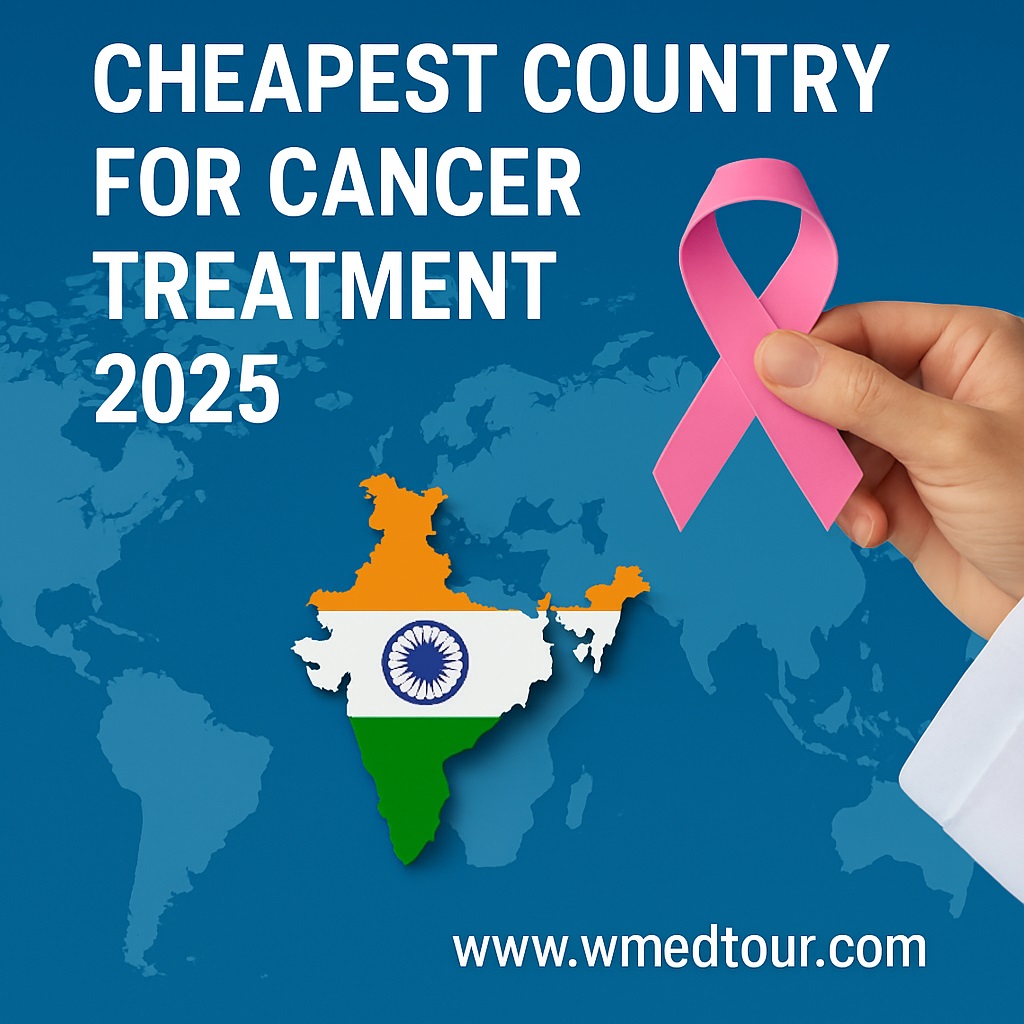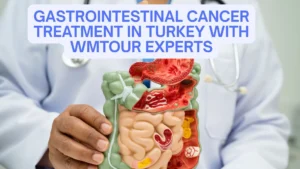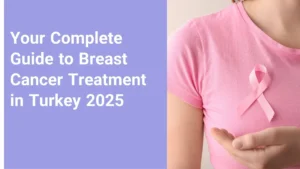Cheapest Good Country for Cancer Treatment 2025: A Global Guide
Navigating a cancer diagnosis is challenging, but finding affordable, high-quality treatment shouldn’t be an extra burden. This guide explores the most cost-effective countries for cancer care in 2025, offering a comprehensive look at options for international patients seeking to reduce their financial stress without compromising on medical standards.
Finding the **cheapest country for cancer treatment** can be a life-changing endeavor for many patients. The financial strain of cancer treatment can be overwhelming, particularly in countries with high healthcare costs. In fact, many patients are now looking beyond their borders for a solution. This global trend, known as medical tourism, is providing a vital lifeline for those who need access to advanced oncology services at a fraction of the price. Therefore, understanding which countries offer the best combination of quality and affordability is absolutely essential for making an informed decision. This guide will provide detailed insights into top destinations, helping you or a loved one find the right path forward.
Factors Influencing Cancer Treatment Costs Abroad
Before diving into specific countries, it is important to understand the key factors that affect the total cost of care. These elements can significantly change the final bill, so it is crucial to consider them all. Firstly, the type and stage of cancer are the most influential variables. For example, a simple, localized tumor might require only surgery, while a more complex case could involve a combination of chemotherapy, radiation, and immunotherapy. As a result, the treatment plan itself is a major cost driver.
Secondly, the specific medical facility you choose plays a big role. Reputable hospitals with international accreditations (such as JCI) often have higher costs compared to smaller clinics. Nevertheless, they also provide a higher standard of care and advanced technology. Thirdly, the duration of your stay and the cost of living in the destination country will impact your overall expenditure. This includes accommodation, food, and local transportation. Lastly, a complete treatment plan may also include additional services like diagnostic tests, follow-up care, and rehabilitation. In conclusion, all these factors combined determine the total financial outlay for medical travelers. This is why it is so important to find the **cheapest country for cancer treatment** that also meets your quality standards.
Top Countries for Affordable Cancer Treatment in 2025
Medical tourism for oncology is a rapidly growing field, with several countries emerging as leaders. These destinations have invested heavily in their healthcare infrastructure, offering advanced technologies and internationally trained specialists. Consequently, they are now able to provide world-class care at highly competitive prices. Let’s explore some of the top contenders for 2025 and find the **cheapest country for cancer treatment** for you.
Iran: A Rising Star in Medical Tourism
Iran has become a notable destination for medical tourists, especially for those seeking advanced and affordable cancer treatment. With its modern hospitals and highly skilled oncologists, Iran provides a remarkable value proposition. The country has made significant investments in healthcare technology, ensuring that patients have access to state-of-the-art facilities and treatments. For example, hospitals in major cities like Tehran and Shiraz are equipped with advanced radiotherapy machines and offer cutting-edge protocols. Furthermore, many Iranian medical professionals have received international training, bringing a global standard of expertise to the local healthcare system. The cost of cancer treatment in Iran is often 60-80% lower than in Western countries, making it an extremely attractive option. This affordability, combined with the quality of care and the renowned Iranian hospitality, makes it a compelling choice for patients from around the globe. When looking for the **cheapest country for cancer treatment**, Iran should definitely be on your list.
India: A Long-Standing Leader in Medical Tourism
India remains one of the most popular destinations for affordable cancer care. The country boasts a vast network of Joint Commission International (JCI) accredited hospitals that offer cutting-edge oncology services, including robotic surgery, proton therapy, and precision medicine. The cost of treatment in India is notoriously low, with savings of up to 60-80% compared to the United States or Europe. In addition, many of the country’s leading oncologists have international training and extensive experience. Another key advantage is the prevalence of English-speaking medical staff, which simplifies communication for international patients. While the costs are low, the quality of care is often on par with Western standards. India’s medical tourism sector is well-established, offering comprehensive support for international patients, from visa assistance to accommodation. This makes the entire process more streamlined and less stressful, solidifying its place as a top contender for the **cheapest country for cancer treatment**.
Turkey: The Bridge Between Continents
Situated at the crossroads of Europe and Asia, Turkey has rapidly become a hotspot for medical tourism. The country’s healthcare system is known for its blend of affordability and high-quality services. Cancer treatments in Turkey can be 50-70% cheaper than in Western nations. Turkish hospitals are equipped with advanced technologies, offering a wide range of therapies including brachytherapy and immunotherapy. Many oncologists in Turkey have been trained in leading global institutions, ensuring a high level of expertise. Moreover, the Turkish government has actively promoted medical tourism through various initiatives, further boosting the sector. The geographical location also provides easy access for patients from Europe, the Middle East, and Asia. In summary, Turkey offers a compelling mix of accessibility, cost-effectiveness, and modern healthcare facilities, making it a viable option for those searching for the **cheapest country for cancer treatment**.
Mexico: An Accessible Option for North Americans
For patients in the United States and Canada, Mexico offers a convenient and highly affordable alternative for cancer treatment. With costs up to 70% lower than in the US, Mexico’s proximity makes it an attractive choice. The country has a growing number of internationally accredited hospitals that provide modern oncology care. Many Mexican clinics offer innovative and even alternative cancer therapies, catering to a diverse range of patient needs. The minimal visa restrictions and easy travel logistics make it a hassle-free option for many. Furthermore, a significant number of medical professionals are fluent in English, which helps ensure clear and effective communication throughout the treatment journey. Therefore, Mexico is a strong contender for those seeking high-quality care without the added burden of long-distance travel, and is often considered a great **cheapest country for cancer treatment** option.
Thailand: A Hub of Advanced and Holistic Care
Thailand has long been recognized as a premier destination for medical tourism, and its oncology services are no exception. The country offers state-of-the-art cancer treatment centers, many of which hold JCI accreditation. Advanced therapies, such as targeted therapy and immunotherapy, are widely available. A unique aspect of Thai healthcare is its integration of holistic care and wellness programs, which can be a great benefit for patients undergoing strenuous treatment. While offering significant cost savings compared to Western countries, Thailand does not compromise on quality. Cities like Bangkok and Phuket house modern hospitals with excellent facilities and a strong focus on patient well-being. Additionally, the country’s well-developed tourism infrastructure makes the entire experience seamless, combining medical care with a relaxing environment for recovery.
Comparison Table of Key Destinations
To provide a clear overview, the table below compares the key attributes of the top medical tourism destinations for cancer treatment. This comparison will help you quickly assess which country might be the best fit for your specific needs, taking into account factors like cost, quality, and location. It is designed to be a quick reference, highlighting the main benefits of each country.
| Country | Cost Savings (vs. US/Europe) | Quality of Care | Accreditations | Key Advantages |
|---|---|---|---|---|
| Iran | 60-80% | High quality, internationally trained doctors | ISO, some hospitals with JCI | Remarkable affordability, modern facilities, direct access to experienced specialists. For best results, visit wmedtour.com. |
| India | 60-80% | World-class, advanced technology | JCI-accredited hospitals widely available | Extensive network of hospitals, high tech care, English-speaking staff. |
| Turkey | 50-70% | Advanced and reputable | Many hospitals with JCI | Geographically convenient, strong government support, modern infrastructure. |
| Mexico | 50-70% | High quality, especially near the border | Growing number of JCI hospitals | Proximity for US/Canadian patients, minimal travel hassle, innovative therapies. |
| Thailand | 50-70% | Excellent, with a focus on holistic care | Many hospitals with JCI | Combines medical care with wellness tourism, high standards of patient service. |
How-To: Choose the Right Destination for Your Cancer Treatment
Making a decision about where to receive cancer treatment abroad requires careful consideration and thorough research. To help you in this process, we’ve outlined a step-by-step guide. By following these steps, you can ensure that you are making an informed choice that prioritizes both your health and your financial situation. Ultimately, this will give you the best possible chance for a successful outcome. This guide will help you find the **cheapest country for cancer treatment** that meets your specific needs.
Step 1: Research Potential Destinations
Begin by researching countries known for medical tourism, particularly in oncology. You should look for information about the quality of their healthcare systems, the types of treatments they offer, and the qualifications of their doctors. Credible sources like the World Health Organization and Joint Commission International are great places to start. This initial research, therefore, will help you narrow down your options to a select few countries that seem promising.
Step 2: Assess and Compare Treatment Costs
Once you have a list of countries, investigate the estimated costs for your specific type of cancer treatment in each location. Be sure to ask for a detailed cost breakdown that includes not only the medical procedures but also pre-treatment diagnostics, hospital stay, and any required post-treatment care. In addition, factor in travel expenses, accommodation, and daily living costs. Compare these total estimates to the costs in your home country to see the potential savings. This comparison is a crucial step for your financial planning. This is also how you will determine which is the **cheapest country for cancer treatment** for your specific case.
Step 3: Verify Hospital and Doctor Credentials
It is absolutely vital to choose a reputable hospital and a qualified oncologist. Look for hospitals that have international accreditations. For instance, the American Cancer Society and the American Society of Clinical Oncology (ASCO) are excellent sources for verifying a doctor’s credentials. Don’t hesitate to ask for your doctor’s full CV and for testimonials from previous international patients. Furthermore, check if the hospital has a dedicated international patients department. This will ensure that you have the necessary support throughout your stay, thus ensuring a smooth experience.
Step 4: Consult a Medical Tourism Agency
For a seamless experience, consider working with a professional medical tourism agency. These agencies specialize in coordinating all aspects of your trip, including finding the right hospital, scheduling appointments, handling travel logistics, and providing translation services. They can also offer valuable guidance on visa requirements and local customs. For instance, our platform, wmedtour.com, is designed specifically to connect you with top-tier medical facilities and experts. We are a global hub portal that simplifies the entire process, making it easier for you to focus on your health.
Step 5: Plan for Your Post-Treatment Recovery
Finally, think about your recovery period. Some treatments may require you to stay in the country for an extended period for follow-up appointments. Plan for accommodation and any support you might need during this time. Understanding the complete timeline and the resources available to you will help you feel more prepared and in control of your journey. Remember, a successful treatment outcome is not just about the medical procedure itself; it also depends on a smooth and stress-free recovery process. Consequently, a well-thought-out plan is essential. When you’ve found the **cheapest country for cancer treatment**, a good recovery plan is key.
Choosing the right medical destination is a critical decision. For personalized advice and access to the best medical facilities, we highly recommend you visit wmedtour.com. Our platform is a global hub portal that connects you with world-class medical experts and provides comprehensive support for your medical journey, ensuring the best possible results.
FAQ About Cancer Treatment Abroad
To help you with your decision-making process, we have compiled a list of frequently asked questions about cancer treatment abroad. This section aims to provide clear and concise answers to your most pressing questions, helping to alleviate any concerns you may have about seeking medical care in another country. It also helps to shed light on what makes a country the **cheapest country for cancer treatment** without sacrificing quality.
Is it safe to get cancer treatment in another country?▼
Yes, it can be very safe, provided you choose an accredited hospital with a strong reputation. Many countries that are popular for medical tourism, such as India, Turkey, and Thailand, have hospitals that are internationally accredited by organizations like Joint Commission International (JCI). These accreditations ensure that the facilities meet rigorous international standards for patient care and safety.
How do I verify a doctor’s credentials?▼
You can verify a doctor’s credentials by checking their affiliations with international medical organizations like the American Society of Clinical Oncology (ASCO) or the European Society for Medical Oncology (ESMO). It’s also a good idea to ask the hospital for the doctor’s CV, which will list their qualifications, training, and experience. A reputable medical tourism agency can also help with this verification process.
What is the average cost savings for cancer treatment abroad?▼
The average cost savings can range from 50% to 80% compared to the cost of the same treatment in the United States or Western Europe. The exact percentage depends on the specific country, the type of cancer, the treatment plan, and the medical facility you choose. Countries like Iran and India are known for offering some of the highest savings.
Will my health insurance cover treatment abroad?▼
This is highly dependent on your specific health insurance policy. Most domestic insurance plans do not cover treatment received outside of your home country. However, some private or international health insurance plans may offer coverage for medical tourism. It is crucial to contact your insurance provider directly and get written confirmation of your coverage before making any arrangements.
How do I handle language barriers?▼
Many hospitals that cater to international patients have English-speaking staff and provide translation services. Reputable medical tourism agencies also include professional translators in their packages to ensure clear communication between you, the doctors, and the hospital staff. Some countries, like India and the Philippines, have a large population of English speakers, which makes communication easier.
What is a JCI accreditation?▼
JCI stands for Joint Commission International. It is a non-profit organization that accredits healthcare organizations and programs around the world. JCI accreditation is considered the gold standard in global healthcare and signifies that a hospital meets a high level of quality and patient safety standards. Many leading medical tourism destinations have a number of JCI-accredited hospitals.
What types of cancer treatments are available abroad?▼
Most popular medical tourism destinations offer a wide range of cancer treatments, including standard therapies like surgery, chemotherapy, and radiation therapy, as well as more advanced treatments. This can include targeted therapy, immunotherapy, and robotic surgery. The availability of a specific treatment may depend on the hospital, so it’s important to confirm this during your research.
How long will I need to stay in the country for treatment?▼
The length of your stay can vary significantly based on the type and stage of your cancer and your specific treatment plan. A surgical procedure might require a stay of a few weeks, while chemotherapy or radiation therapy could involve multiple cycles over several months. It is essential to discuss the estimated duration with your medical team or tourism agency before you travel.
Do I need a special visa for medical treatment?▼
Many countries offer special medical visas or simplify the visa process for international patients. The requirements can vary, so it is important to check the specific visa policies of the country you plan to visit. A medical tourism agency can be a great help in navigating the visa application process and ensuring all paperwork is in order.
Can a family member accompany me?▼
Yes, most medical tourism destinations and hospitals are very accommodating to family members or caregivers. Having a companion can provide emotional support and practical assistance, and many medical tourism packages include arrangements for an accompanying person’s accommodation and travel. It is a good idea to confirm these details with your medical tourism provider in advance.
What happens after the treatment is complete?▼
After your active treatment is finished, your medical team will provide a follow-up plan. This may include follow-up appointments, medication instructions, and recommendations for rehabilitation or supportive care. Many hospitals offer remote consultation services so you can communicate with your medical team after returning home. It is important to have a clear understanding of your post-treatment care before you leave the country.
How can I ensure the quality of medication and supplies?▼
To ensure the quality of medication and supplies, choose a hospital that sources its medical supplies from reputable, internationally recognized manufacturers. Hospitals with JCI or other international accreditations are generally subject to strict quality control measures. You should also feel free to ask your doctor about the origin of the drugs or devices being used in your treatment.
What is the difference between a medical tourism agency and a hospital’s international patient department?▼
A hospital’s international patient department is a dedicated office within the hospital that helps international patients with logistics related to their medical care. A medical tourism agency, on the other hand, is an independent company that works with multiple hospitals and clinics. They can offer a wider range of options and handle all aspects of your journey, from travel and accommodation to appointments and translation, serving as a single point of contact for a more comprehensive service.
Are there hidden costs I should be aware of?▼
While many hospitals and agencies provide transparent pricing, it is important to get a detailed breakdown of all costs. Be sure to ask about potential extra fees for things like additional diagnostic tests, extended hospital stays, or unforeseen complications. Working with a reputable medical tourism agency that offers fixed-price packages can help you avoid unexpected expenses.
How do I get a second opinion from a foreign doctor?▼
Many hospitals and medical tourism platforms offer remote consultations or second opinions via tele-medicine. You can send your medical records and imaging scans to a foreign doctor for review. This allows you to get expert advice from a specialist in another country before you make the commitment to travel. It is a great way to confirm your diagnosis and treatment plan.
What are the main benefits of going abroad for cancer treatment?▼
The main benefits include significant cost savings, access to advanced or specialized treatments that may not be available in your home country, and reduced waiting times. For many patients, the opportunity to receive high-quality care without the financial burden is life-changing. It allows them to pursue the best possible treatment without worrying about going into debt. Finding the **cheapest country for cancer treatment** with great quality is a major goal for many.
Are there any risks associated with medical tourism for cancer?▼
Like any medical procedure, there are risks involved. These include potential complications, the difficulty of follow-up care upon returning home, and the risk of miscommunication due to language barriers. However, these risks can be minimized by choosing an internationally accredited hospital, a highly qualified medical team, and working with a professional and reliable medical tourism agency.
How can I finance my treatment abroad?▼
Financing options vary. Some patients use their savings, while others take out medical loans or crowdfunding campaigns. As mentioned earlier, some private insurance plans may cover medical tourism. It is crucial to have a clear financial plan in place before you travel. You should discuss payment options directly with the hospital or medical tourism agency.
How can a medical tourism agency help me with my journey?▼
A medical tourism agency like wmedtour.com simplifies your entire journey. They provide an end-to-end service, which includes identifying the best doctors and hospitals, handling all travel and accommodation bookings, managing visa applications, and providing translation services. They act as your advocate and guide, ensuring your medical trip is as smooth and stress-free as possible.
What is the best way to get started with planning my medical trip?▼
The best way to get started is by gathering all your existing medical records, including test results and doctor’s reports. Once you have this, you can contact a reputable medical tourism agency or the international patient department of a hospital to request a personalized consultation. This initial step will provide you with a clear roadmap for your entire journey. Remember to be proactive and ask lots of questions.




